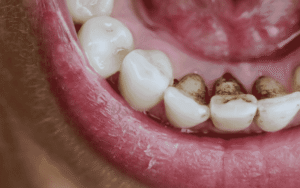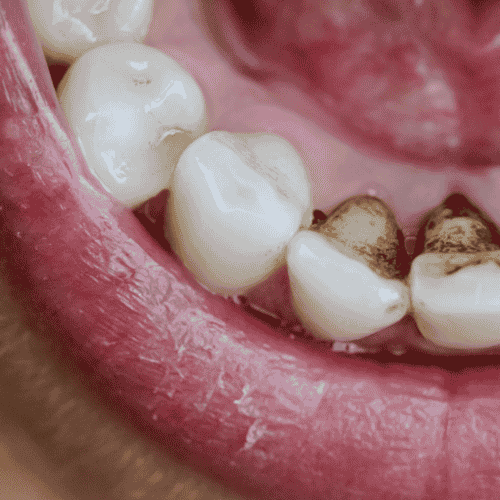Diabetes And Dental Implants: Is It Possible?
Diabetes is very common in Turkey and affects many people from all walks of life. Managing diabetes requires attention to food, lifestyle and medical care, and that makes some treatments, like dental implants in Turkey, more complicated. For people with diabetes who are struggling with tooth loss, the question of whether dental implants are safe arises frequently. Does diabetes compromise the success of the procedure? These are big concerns. Luckily, with the developments in dental treatment, implants have become a viable option for many diabetic patients. This article will explain how diabetes affects dental implants and how to ensure a successful and smooth treatment.
Diabetes Can Affect The Success Of Dental Implants In A Few Ways:
Healing:
Diabetes can slow down the body’s healing process, which makes dental implants merge with the jawbone more slowly. High blood sugar levels can disrupt blood flow and limit the nutrients and oxygen provided to tissues, which are required for optimal recovery.
Gum Disease:
Gum disease is more likely in those with diabetes, which can compromise the tissue around the implant and cause implant failure. Before having implant surgery, one must have healthy gums, and one must maintain appropriate oral hygiene afterwards.
Blood Sugar Control:
Uncontrolled blood sugar levels run the danger of causing inflammation around the implant site and infection. Maintaining steady blood sugar levels lowers certain risks and increases the possibility of effective implant treatment.
Bone Health:
Diabetes can impact bone density and the body’s ability to create new bone, which is essential for implant stability. Patients might need further bone support or grafting to make sure that the implant is securely attached.
Immune System:
Diabetes can compromise the immune system, so the body finds it more difficult to fight against infections. This emphasizes the necessity of keeping the implant region clean and following the dentist’s aftercare recommendations precisely.
What Diabetics Can Do?
Control Your Blood Sugar:
Maintaining stable blood sugar levels is a critical step for diabetic patients considering dental implants. Following your doctor’s advice and doing regular monitoring will help to avoid issues and promote healing after surgery. For optimum results, aim to keep your HbA1c level below 7.
Maintain Good Oral Hygiene:
Daily brushing and flossing are absolutely vital to avoid infections around the implant site. Use fluoride toothpaste and a soft-bristled toothbrush; also, consider using an antimicrobial mouthwash. Regular professional cleanings can also help you maintain good oral health.
Follow Your Dentist's Instructions:
Your dentist will give detailed instructions for pre- and post-implant care, including drugs, dietary adjustments, and activity limitations. Following these recommendations precisely can significantly improve the success of your dental implants. Don’t be afraid to ask questions or express your concerns during your follow-up visits.
All-on-4 Dental Implants for Diabetics:
All-on-4 dental implants are a great choice for diabetic patients needing to replace most or all of their teeth. All-on-4 implants, as opposed to dentures and bridges, are stable and secure in the mouth, making eating easier. Because of their stability, diabetic individuals can consume a balanced, healthy diet free from the pain or limitations associated with traditional tooth replacement options..
Can Type 2 Diabetics Get Dental Implants Safely?
Dental implants are safe for Type 2 diabetics in Turkey as long as their diabetes is appropriately controlled. According to research, success rates are comparable to those of healthy individuals, providing a long-term tooth replacement alternative.
However, uncontrolled diabetes increases the risk of infection and implant failure. Working with your doctor to normalize blood sugar levels improves patient safety while also improving eating and speaking abilities.
Dental Implant Alternatives for Diabetics

Alternatives for diabetics, such as Dental bridges, dentures, or Dental Crowns Turkey, can replace lost teeth but usually lack the safety and comfort of implants. Bridges might damage surrounding teeth during preparation; dentures may slip or cause pain.
Diabetics have to keep excellent dental hygiene in order for these solutions to be effective. To avoid inflammation and infection, further precautions must be taken, such as regular checkups and professional cleanings.
Schedule Your Consultation Today with Teeth Implants Turkey For Dental Excellence
Looking for reputable dental care in Turkey? At Teeth Implants Turkey, we can help you achieve a confident smile even with diabetes. Our skilled team provides customized solutions, including dental implants, to meet your specific needs. Schedule your consultation today and take the first step toward improved oral health.
FAQs About Dental Implants And Diabetes
What Is The Best Tooth Replacement For Diabetics?
Dental implants are the best option for diabetics with well-controlled blood sugar because they give stability and comfort while also promoting a healthy lifestyle. Alternatives such as dentures and bridges may be effective, although they frequently slip or cause irritation.
What Is The Success Rate Of Implants For Diabetic Patients Turkey?
The success rate of dental implants in diabetics with regulated blood sugar is comparable to that of non-diabetics. Studies reveal that well-managed diabetes has no significant effect on implant results, making them a safe option for the majority of diabetics.
Why Can't Diabetics Have Dental Implants?
Diabetics can undergo dental implants, provided their condition is well-managed. Uncontrolled diabetes raises concerns since it influences the success of the operation, hinders recovery, and increases the risk of infection. Maintaining steady blood sugar levels is essential for safe and efficient implant treatment.
Who Cannot Have Dental Implants?
People with uncontrolled diabetes, severe gum disease, or insufficient bone in the jaw may not be ideal candidates for dental implants. It’s crucial to speak with a dentist to examine your individual issue and select the best treatment option.
Is It Necessary To Control Blood Sugar For Successful Dental Implants If I Have Diabetes?
Yes, regulating blood sugar levels is critical for effective dental implants. Stable blood sugar levels lower the infection risk, promote healing, and raise the likelihood of a long-lasting implant. Those with effectively regulated diabetes have comparable success rates to those without diabetes.
Can Diabetics Get Dental Implants Safely?
Yes, diabetics can safely receive dental implants, provided their condition is adequately treated. Regular blood sugar monitoring, adequate oral cleanliness, and following the dentist’s recommendations can all assist diabetic individuals in achieving a safe and effective outcome.














